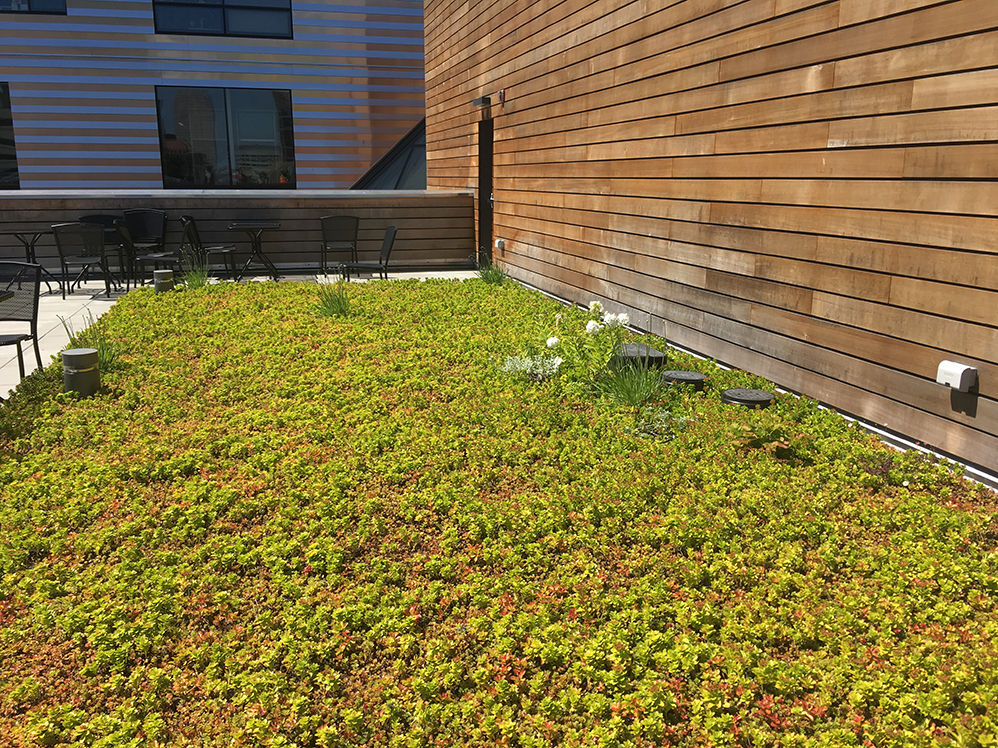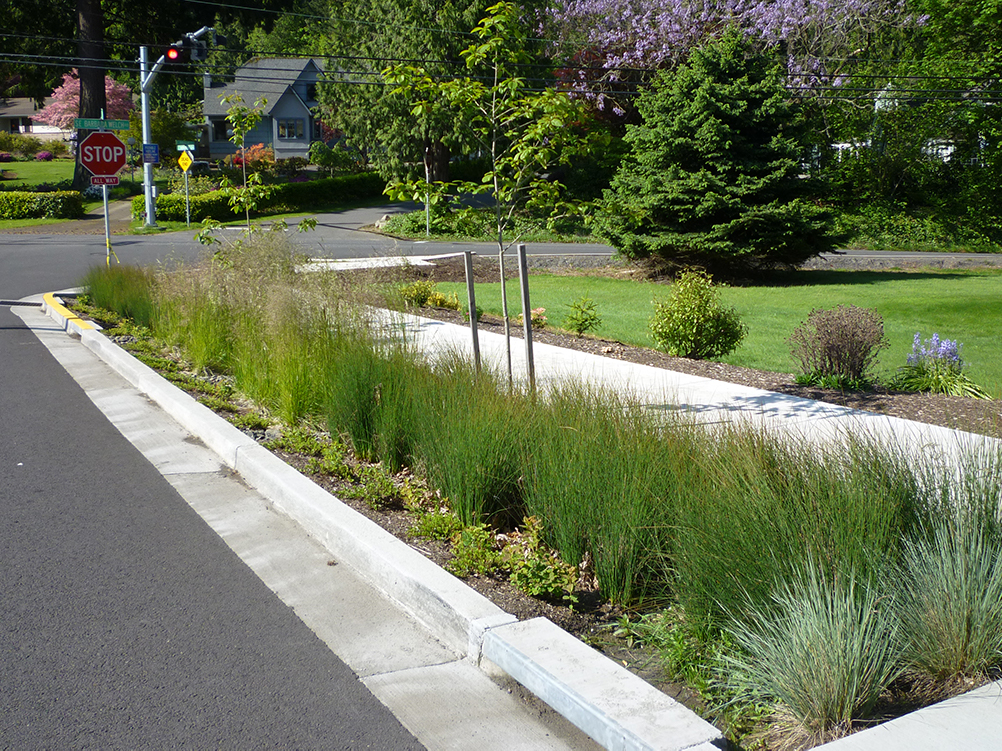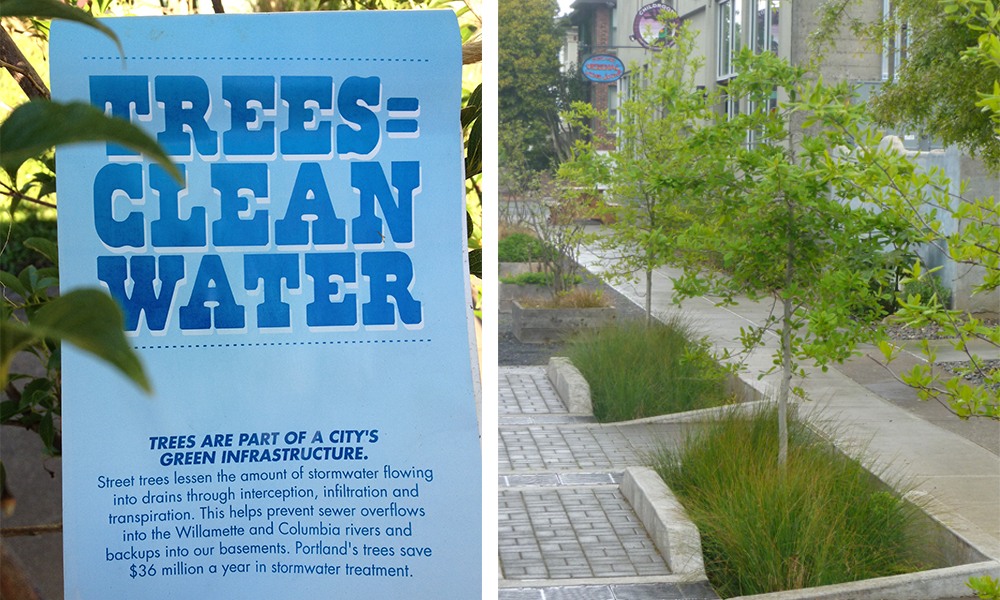Growing urban populations are placing pressure on existing stormwater systems, producing high flood rates, degraded urban aquatic habitat, and low water quality in urban lakes, rivers, and streams. In the case of Chicago, the result imposes losses on residents of as much as $4 billion per year.
Stormwater management is a potentially low-cost solution that can address these challenges. One research group from the Center for the Economics of Sustainability at Illinois and Reed College in Portland, Oregon is tackling the issue using economics. The research team – including CEOS researchers Amy Ando and Bryan Parthum and partners Noelwah Netusil and Catalina Londoño Cadavid– estimated the monetary benefits of stormwater management improvements for Chicago and Portland and how much people are willing to volunteer to improve outcomes. These estimates can inform federal policies and public programs that shape how and where resources are allocated.
Stormwater management is a decentralized approach that requires multiple actors to work together to be effective: property owners must maintain their own projects, such as rain barrels and rain gardens, while cities (with the support of their residents) must maintain public infrastructure, such as green roofs and green streets that allow proper water infiltration.

The research team analyzed responses to a survey of 662 households to estimate how much people are willing to pay or volunteer to improve flooding, aquatic habitat, and water quality in their own communities. Results show that people prefer to have some kind of stormwater management program improvement than none at all. The average individual was willing to pay $275 and volunteer nearly 46 hours each year (one hour a week) to have some improvement in both aquatic habitat and water quality from current conditions of low quality “fair” habitat and water in which one could boat but not much else.
Some additional improvements would provide direct benefits to residents. For each 10% reduction in street, backyard and basement flooding, individuals were willing to pay $6 and volunteer over an hour each year. Individuals were also willing to pay $5.60 or volunteer two and a half hours to improve water quality for recreational purposes to be “swimmable” instead of “fishable”.

Better stormwater management also improves less tangible benefits people gain from aquatic habitats that have non-eroded riverbanks, healthy fish populations, and thriving vegetation. The study found that people expressed large value for restoring that feature of their urban ecosystem. The average individual was willing to pay $23 and volunteer 5 hours each year to improve aquatic habitats to “excellent” from “good” condition.
The team calculated that an ambitious project improving aquatic habitat to excellent and water quality to swimmable increases average household welfare in these cities by $281 per year. If floods are also cut by 50% the annual benefit increases to $302 per year. People seem also to be willing to pay for such improvements with time; the study’s results indicate that an average respondent might be willing to volunteer 55 hours a year for that bundle of improvements to flooding, water quality, and habitat. This is consistent with other studies and Portland’s Green Street Steward Program, which finds that households voluntarily spend as much as once a week to maintain green infrastructure. These findings are cautiously encouraging for urban stormwater managers hoping to muster an army of volunteers to help reduce stormwater runoff and improve watershed health.

Effective stormwater management requires many coordinated parts, including time and money. Individuals, public city offices, and federal policies all play important roles. By estimating how much people are willing to pay and willing to volunteer to maintain effective green infrastructure, this research from CEOS collaborators at the University of Illinois and Reed College can inform policies that shape overall improvements that are needed to sustain healthy urban communities and shape programs that restore balance to urban systems.
Access the published paper:
Ando, A. W., Cadavid, C. L., Netusil, N. R., & Parthum, B. (2020). Willingness-to-volunteer and stability of preferences between cities: Estimating the benefits of stormwater management. Journal of Environmental Economics and Management, 99, 102274. doi: 10.1016/j.jeem.2019.102274

